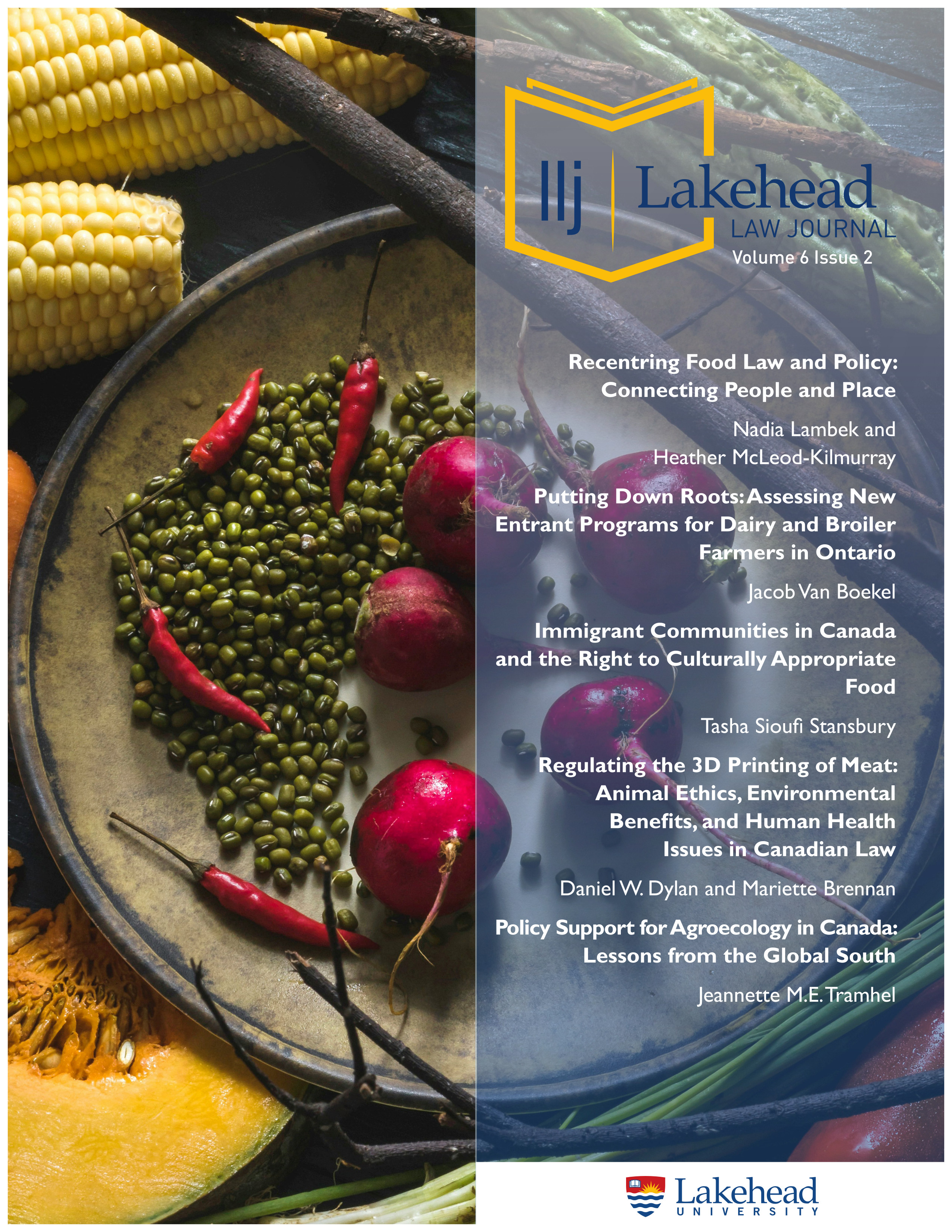Regulating the 3D Printing of Meat: Animal Ethics, Environmental Benefits and Human Health Issues in Canadian Law
Abstract
The fates of animals, human health, and the environment are entwined. The prevalence of COVID-19 and other zoonoses has only made such a reality more evident. Animal advocates and environmentalists have long called for reductions—if not the elimination—of industrial agriculture to stem the tide of animal abuse and environmental degradation. Similarly, health advocates have called for major changes to the typical Western diet, which is heavily reliant on animal protein, to improve overall health. The novel use of 3D printing to create animal proteins may be the catalyst to change these advocates seek. 3D printing of animal protein would remove the cruelty component animals suffer in the industrial agriculture context and perhaps make the consumption of animal protein healthier and more sustainable. But this new technology is fraught with concerns: costs may be exorbitant, food security is uncertain, and the regulation of these products must be addressed. This paper seeks to address some of these regulatory issues.
Downloads
Published
Issue
Section
License
Authors retain original copyright and grant the LLJ first publication rights. Articles published in this open access journal are free to use, with proper attribution, for educational and non-commercial purposes.


